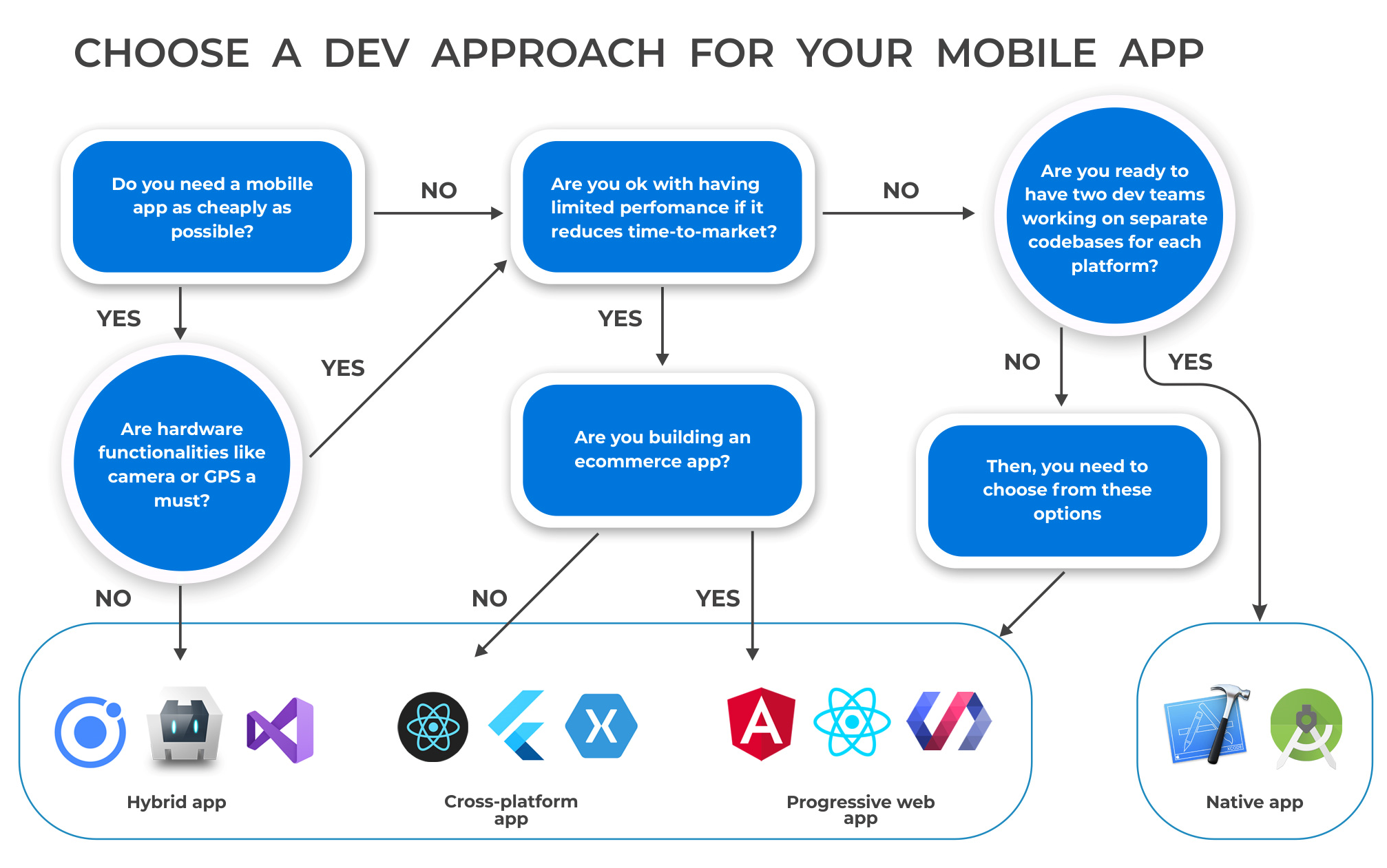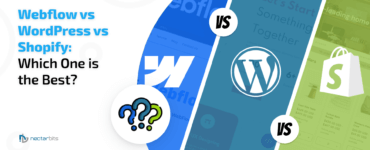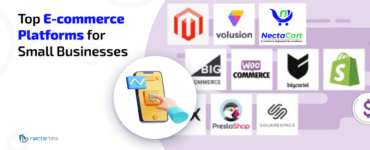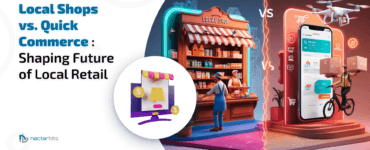Nowadays, a smartphone app is an irreplaceable aspect of every company that seeks to maximize the use of new technology to create deep consumer relationships. Given the ever-increasing role that mobile devices play in people’s lives, there is nothing unique about smartphone applications helping companies keep in contact with consumers 24/7 and giving them a better experience.

Even if you are confident that a mobile app is a useful tool that can help your business, you are still one step away from starting the cycle of growth. You must make an essential decision and choose between the creation of a hybrid or native smartphone application. You can make that decision based on your goals and resources that are available to you. This article will try to highlight some of the advantages and disadvantages of both strategies in this article to help you decide which choice would work better for your particular company.
The Difference
Native mobile apps, such as Android or iOS, are designed for a particular platform. To build such an app, developers will use programming languages that are supported by a platform where the software will be running. An app for iOS will have to be coded in a language that is supported by the operating system, like Swift.

Hybrid applications, in exchange, provide versatility across platforms. Developers use such web technology as HTML, CSS, and various JavaScript frameworks to build modern smartphone app. Hybrid apps, as you might have guessed, are similar to websites that could run on mobile devices. Current software engineering technologies make it possible for hybrid applications to control the smart phone’s capabilities and act like a completely functional smartphone app. Frameworks such as React Native development services are used to wrap HTML code and convert it into a mobile app.
Hybrid apps are easy to develop and take less time when compared to native apps. Native apps, on the other hand, are more secure and offer better performance. The cost of building a native app is higher, and its maintenance is more complicated. If you want to develop the same native app for another OS, the whole development process must be repeated. But Hybrid Apps offer a universal solution for all platforms.
Choosing Between the Two
When we look at native and hybrid applications more closely, the strengths of both will become more apparent. What you need to do is match the critical characteristics of those strategies with the company’s requirements and goals. Specialized apps, for instance, provide excellent data security and security. For companies that work with sensitive data or financial information, they will thus be a great choice.
In comparison, hybrid applications have cross-platform capabilities. This functionality will work well for start-ups with minimal funding, and as many apps as possible would be secured. It is important to remember that it is not the essence of hybrid and native applications that decides whether or not your company is going to thrive. The crucial thing is the developers’ ability to build them well, and your ability to match your needs with the opportunities offered by both options.
Lower Price Offered by Hybrid Apps
Since developers have to work with the same code base that encompasses all target platforms at once, the creation of hybrid apps can be rapid compared to native ones. If you choose hybrid app development services, there would be no need to write source codes for iOS and Android test both versions and fix bugs that have appeared twice. You will get acceleration in development speed and low expenses. You can face a slightly slower performance as a drawback which is usually common for hybrid apps.
Hybrid Apps are a great option if you want to save money, and your app is simple. More complex apps, when built as Hybrid applications, might result in slow performance. The maintenance of hybrid applications is also more comfortable.
Better Performance Offered by Native Apps
Exceptional performance is undoubtedly the biggest reason to pick native mobile applications. These apps will leverage the full range of possibilities a mobile device’s hardware offers. The application will be able to connect the hardware features of the invention and various databases without the need to use any additional add-ons. Making a native app secure, too, is more comfortable. That is why native apps are so popular among businesses that process their customers’ sensitive data.
Native apps can be an excellent choice for customized ecommerce application development if you want to guarantee an outstanding customer experience. Your app’s lag-free interface and excellent efficiency ensure customer satisfaction. It would help if you also were confident the developers with whom you work are mindful of all the positives and negatives of using well-established technology.
Conclusion
Most of the customers will not know the difference between a hybrid app versus a native one. However, choosing between these strategies may be crucial for your company. In the world where every unit of money wasted and every day of uncertainty will determine the destiny of one’s company, you have to be aware that the choices need to be thought out carefully. Therefore, the choice depends on your needs as a company and your client’s expectations.









